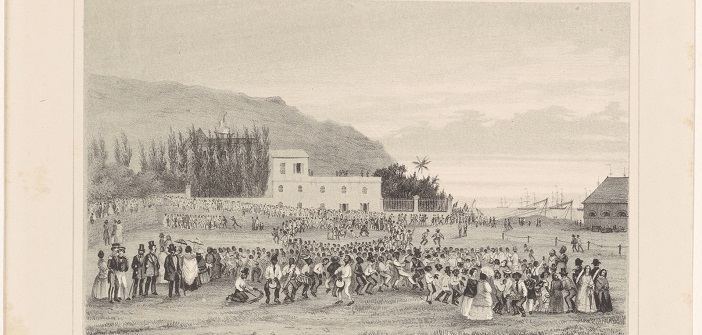The adoption of the Taubira law on May 10, 2001, sparked hope for closing the chapter on 150 years of denial and silence surrounding these events, which were responsible for the premature death of thousands of men and women in the French overseas colonies.
The text notably established the obligation to grant “the appropriate place” that the slave trade and slavery deserve in school curricula and research programs. May 10 became a national day of remembrance for the memories of the slave trade, slavery, and their abolition.
The issue of financial reparations, raised since the definitive abolition of slavery in 1848 in France, was only realized for the slave owners who were then compensated for the harm they suffered.
Nothing was given to the 250,000 slaves that France counted on the eve of the abolition decree, including nearly 90,000 in Guadeloupe, 75,000 in Martinique, 60,000 in Réunion, and 12,000 in Guyana.
A legal and genealogical puzzle, the issue of material reparations divides even within the ranks of associations and descendants of slaves.
Should we adhere to the words of Martinican poet Aimé Césaire who said, “there is no possible reparation for something irreparable and that cannot be quantified?”
“The only debt that needs to be paid” to the descendants of slaves “is to advance humanity,” emphasized François Hollande in 2015.


